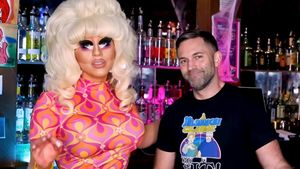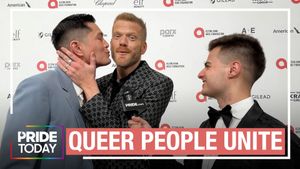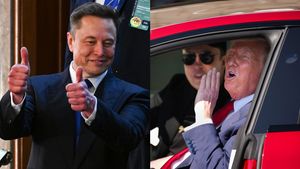CONTACTAbout UsCAREER OPPORTUNITIESADVERTISE WITH USPRIVACY POLICYPRIVACY PREFERENCESTERMS OF USELEGAL NOTICE
© 2025 Pride Publishing Inc.
All Rights reserved
All Rights reserved
By continuing to use our site, you agree to our Private Policy and Terms of Use.
On his final day before the Senate Judiciary Committee, Supreme Court nominee Samuel Alito covered some new ground as senators conducted a third round of questioning. Other witnesses testified on the nomination. Here are some highlights: --Sandra Day O'Connor: Alito said O'Connor, whom he would replace on the court, will be remembered for her devotion to the facts of the cases that come before her. Alito said he would try to emulate "her integrity and her dedication to the case-by-case process of adjudication." Asked by Sen. Herb Kohl, a Democrat from Wisconsin, whether he would fill O'Connor's role as a centrist on the court, Alito said he will be his own person with "whatever abilities I have and whatever limitations I have." --Stare decisis: On the principle that a court should adhere to principles laid down in previous decisions, Alito said courts need a special justification for overruling a prior precedent. He also said reliance on a precedent and its reaffirmation in subsequent decisions are important factors to consider. "But I've also said it's not an inexorable command," Alito added. --Discrimination: Alito told Wisconsin's other senator, Democrat Russell Feingold, "I can't think of a reason" why Congress would not have the power to prohibit employment discrimination against gays and lesbians, although he said he would have to see the arguments. --Right to die: Sen. Patrick Leahy, a Democrat from Vermont, brought up the controversial case of Terri Schiavo, the Florida woman who suffered a brain injury in 1990 that left her in what some doctors called a "persistent vegetative state." Schiavo was at the center of a fierce fight between her husband and family over her fate. Leahy asked whether patients with a living will can designate somebody to speak for them "in a case of terrible injury" or unconsciousness. "Yes, senator," Alito responded, "that's, I think, an extension of the traditional right that I was talking about that existed under common law. And it's been developed by state legislatures, and in some instances by state courts, to deal with the living will situation and with advances in...medical technology, which create new issues in this area." --Concerned Alumni of Princeton: Alito's membership in the conservative organization that opposed the admission of women and minorities at Princeton University was examined closely by senators. Marna Tucker, D.C. circuit representative for the American Bar Association, testified, "We were very concerned about the membership of that and what happened. And all of the people we spoke to on the courts, women and minorities, people who he had worked with...almost universally said that they saw no bigotry, no prejudice." --Government power: Goodwin Liu, a law professor at Boalt Hall School of Law at the University of California, Berkeley, agreed that Alito has "an exceptionally talented legal mind," according to his written testimony. But he wrote that the "concern is Judge Alito's lack of skepticism toward government power that infringes on individual rights and liberties. Throughout his career, with few exceptions, Judge Alito has sided with the police, prosecutors, immigration officials, and other government agents." (AP)
From our Sponsors
Most Popular
31 Period Films of Lesbians and Bi Women in Love That Will Take You Back
December 09 2024 1:00 PM
18 of the most batsh*t things N.C. Republican governor candidate Mark Robinson has said
October 30 2024 11:06 AM
True
These 15 major companies caved to the far right and stopped DEI programs
January 24 2025 1:11 PM
True
Latest Stories
Protesters unveil giant Pride flag in response to Utah's new bill trying to ban it
March 11 2025 4:46 PM
LGBTQ+ advocates warn DNC against softening position on trans rights
March 11 2025 12:11 PM
Dylan Mulvaney opens up about ‘Beergate,’ tripping on ayahuasca, and her new book
March 11 2025 9:00 AM
The "Greatest" show on Earth: A review of Trump's first 50 days
March 10 2025 8:00 PM
Texas Republican bill would make simply being transgender a felony
March 11 2025 12:06 PM
Hollywood unites for LGBTQ+ rights against rising Trump
March 11 2025 8:17 AM
The many terms the Trump administration really hates
March 10 2025 5:06 PM
Transgender woman killed by L.A. police after calling for help
March 11 2025 6:05 PM
Pentagon’s so-called waiver for trans troops is a cruel hoax
March 11 2025 1:24 PM
Trending stories
Recommended Stories for You













































































